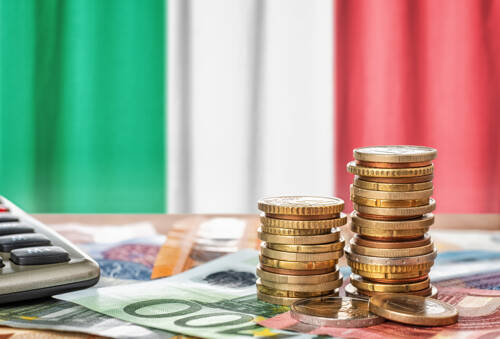Italy’s currency, the Euro (EUR), resonates with the nation’s rich cultural tapestry, from the grandeur of Roman history to the charm of Venetian canals and the allure of Milanese fashion. As captivating as Italy’s cultural festivities, the Euro’s journey reflects the intricate nuances of the country’s economy, presenting both challenges and opportunities for forex traders.
Introduced as part of the European Union’s economic integration, the Euro has been central to Italy’s financial narrative, embodying the nation’s economic fluctuations, political shifts, and responses to international crises. The stability and value of the Euro reflect the resilience and adaptability of Italy and its European neighbors, navigating through economic growth phases, downturns, and varying political landscapes.
Italy’s influence on the Euro is significantly tied to its role in global trade. As a major exporter of luxury goods, automotive products, and agricultural items, Italy’s economic health is closely linked to the demand and pricing of these goods on the global stage. Forex trading market experts closely monitor changes in these prices, as increases could lead to a stronger Euro, buoyed by heightened export earnings. Conversely, a drop in demand signals caution, potentially leading to a weaker Euro.
The European Central Bank’s (ECB) monetary policy, which Italy is a part of, profoundly impacts the Euro. Decisions on interest rates, for instance, influence the currency’s appeal in the global market. Higher rates might attract foreign investments, strengthening the Euro, while lower rates could deter investors, affecting the currency’s value. Such shifts are critical for FX traders, offering opportunities to capitalize on currency value changes.
Italy’s allure for foreign direct investment (FDI) also plays a role in the Euro’s valuation. Policies enhancing Italy’s attractiveness to global investors can boost the Euro by drawing more investment. Conversely, fluctuations in foreign capital inflows, whether in Italy’s technology hubs or industrial sectors, can impact the currency.
Beyond economics, the Euro is influenced by Italy’s domestic and international political climate. Political uncertainties or changes in leadership can create short-term volatility in the Euro, making it a focal point for currency traders who must stay attuned to political developments and their potential forex trading market implications.
Italy’s broader cultural and socioeconomic fabric subtly influences the Euro beyond immediate economic and political realms. Consider how Italy’s rich cultural heritage, from its world-renowned cuisine to its historic landmarks, bolsters the tourism industry. A thriving tourism sector, attracting foreign currency inflows, can support the Euro, while challenges in the sector, such as global health crises, can impact the currency’s strength.
Navigating the forex market is akin to sailing a vast sea, where economic and political currents drive currencies. In this vast expanse, the Euro stands out, mirroring Italy’s rich cultural diversity and its complex economic and political tapestry. The currency’s fluctuations tell tales of a nation steeped in history, facing global challenges head-on, and shaping its destiny through continuous adaptation and resilience.
The Euro is more than a mere monetary unit; it is an integral part of Italy’s storied past and vibrant present. Italy’s journey, from the allure of its art to the bustle of its economic hubs, is intrinsically linked to the Euro’s trajectory. Understanding the Euro in the context of Italy requires a multifaceted approach, considering not just economic indicators but also the nation’s profound cultural heritage.
Moreover, Italy’s role in the Eurozone debt market and its public finance management are crucial factors influencing the Euro. The country’s fiscal policies, debt levels, and economic reforms within the broader EU framework significantly affect the Euro’s stability and valuation.
Additionally, the growing emphasis on sustainable development and green initiatives in Italy and the Eurozone influences the Euro’s trends. As sustainability becomes a key factor in economic policies and investment decisions, forex traders need to incorporate these aspects into their analysis, recognizing how environmental and social considerations increasingly shape currency movements in the context of Italy’s economy.




